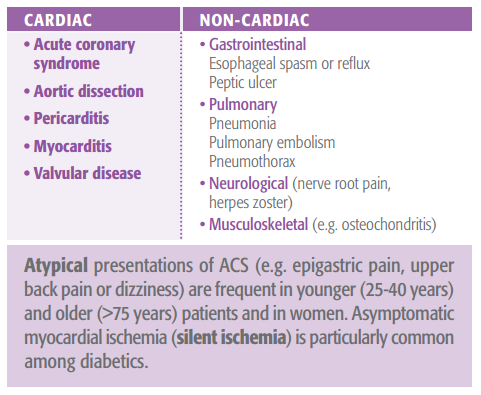Acute Coronary Syndrome – Learn How to Identify and Treat Its Symptoms
Acute coronary syndromes (ACS), also known as coronary heart disease or coronary heart disease, is a disorder that causes significant, short-term changes in the heart's structure. In the early stages of the disorder, ACS can cause fainting, chest pain and fatigue. As the disorder becomes more serious cardiac arrhythmias, cardiac failure, coronary heart disease and even heart attacks can occur.
Acute coronary heart disease occurs when the blood supply to the heart is blocked by plaques
When these plaques become too big, they begin to push against the heart muscle walls causing damage to them. When the heart muscle becomes damaged, it is unable to pump the right amount of blood throughout the body.
The symptoms of coronary heart disease include chest pains, lightheadedness, nausea, sweating and palpitations. These symptoms often come together, which makes diagnosis of the disease very difficult. The first step that a physician takes to diagnose this disorder is to perform a physical exam. A physician will ask about past medications and any medical history, to determine if you are experiencing symptoms of cardiovascular disease. In addition, the doctor may want to order additional tests like an electrocardiogram and blood test.
Once an individual has been diagnosed with acute coronary syndrome, there are a few different treatments for the illness. The most common treatment for this condition is taking drugs that decrease the size of the plaques. Anti-platelet agents are commonly prescribed, but other medications such as diuretics and calcium channel blockers are also used. It is important to note that some of these medications are commonly referred to as beta blockers. This means that they reduce the heart rate and block the passage of salt into the blood.
For people who have developed chronic coronary syndromes, a combination of therapy is typically used. This includes both medication and exercise. Medications used to treat the condition include beta blockers, calcium channel blockers, diuretics and angiotensin II inhibitors. a type of medicine that blocks the formation of the hormone that causes the arteries to harden. Exercise is also recommended, especially if the person has developed clogged arteries and heart failure has occurred. The goal of exercise is to strengthen the heart muscles so that the flow of blood in and out of the heart chambers is increased.

Although it can be extremely serious, the sooner a patient starts to treat their symptoms of heart disease, the better their chances of survival will be. Since the symptoms of this condition do not present themselves until it has reached the worst stages, the only way to make sure you don't develop this condition is to seek treatment. If it is discovered in the early stage, the chances of death from this disorder are reduced. Doctors use medications and exercise in combination to help to improve the symptoms and prevent them from getting worse.
There are some ways in which you can improve your chances of avoiding the development of cardiac arrhythmias. Smoking, alcohol consumption, obesity, hypertension and certain medications can all help increase the risk of having cardiac arrhythmias.
It is best to always talk to your physician if you think that you may have been diagnosed with this condition, as the earlier a problem is caught, the better chances are of treating it and preventing the development of chronic coronary heart disease. For those who smoke, quitting smoking, avoiding alcohol consumption and losing weight can all help to lower the risk of developing this condition.
People who are overweight should try to lose the excess body fat that makes up their overall cardiovascular function. Obesity and being overweight are a common cause of coronary heart disease in those who have developed it. If you are overweight, you may want to consider a more healthy diet plan and a fitness program. Losing weight and a healthier diet will help to improve your general health and may reduce your risk of developing heart disease.
As many people today struggle with high blood pressure, it is very important to check with your physician as soon as possible if you notice any symptoms or warning signs. Even if you are not at a risk of developing heart disease, if you have been experiencing high blood pressure for a long period of time, it is recommended that you continue to monitor your pressure at least twice a year. Even if you never have symptoms, high blood pressure may be an early sign of something more serious such as congestive heart failure.
For those who have already developed heart disease, taking steps to prevent further damage to your heart can help you avoid developing severe complications. It is important to know your symptoms so that you can take the necessary steps to prevent this condition. Doctors can assist you with identifying these symptoms and recommending the best course of action.